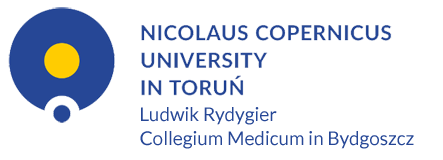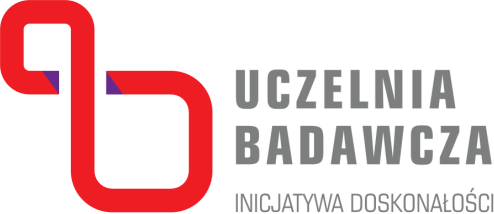
DIRECTIVE NO. 178 of the Rector of Nicolaus Copernicus University in Toruń of 8 September 2020 on the organisation of education at the Nicolaus Copernicus University in Toruń in winter semester of the academic year 2020/2021
DIRECTIVE NO. 178
of the Rector of Nicolaus Copernicus University in Toruń
of 8 September 2020
on the organisation of education at the Nicolaus Copernicus University in Toruń in winter semester of the academic year 2020/2021
Based on Article. 67 sec. 4 of the Act of July 20, 2018 Law on Higher Education and Science (Journal of Laws of 2020, item 85, as amended) and § 52 para. 3 resolutions No. 37 of the NCU Senate of April 16, 2019 Statute of the Nicolaus Copernicus University in Toruń (NCU Legal Bulletin of 2019, item 120, as amended) in connection with § 12 of the Regulation of the Minister of Science and Higher Education of September 27, 2018 on studies (Journal of Laws of 2018, item 1861, as amended)
it is resolved, as follows:
§ 1
1. Didactic classes in higher, postgraduate, doctoral studies and in doctoral schools as well as in other forms of education at the Nicolaus Copernicus University in Toruń in winter semester of the academic year 2020/2021 will be conducted with the use of remote teaching methods and techniques.
2. Remote classes can be conducted as on-line (synchronous) or offline (asynchronous) classes.
3. Classes conducted in a form other than the lecture, resulting from the curriculum, doctoral schools or other form of education, due to their specificity or for other important reasons, may be conducted in a traditional form in the University buildings, while maintaining the applicable safety and sanitary regime.
4. The decision to conduct specific classes in the traditional form in the University buildings is made by the dean or the director of the doctoral school, respectively, by posting it by 15 September 2020 on the faculty websites, and in the case of doctoral schools on the websites of the doctoral school. The final class schedules will be published by September 21st.
5. Schedules of classes should be arranged in such a way as to enable students to participate in all classes, regardless of the form of their conduct.
6. Clinical classes and other classes taking place on the premises of hospitals are conducted in compliance with the safety rules and sanitary regime established by the director of the hospital in consultation with the dean of the relevant department.
7. Physical education classes are held in a traditional or remote form. The decision about the choice of the form of these classes is made by the student at the stage of enrolling in groups.
8. Foreign language courses are held remotely.
§ 2
The course instructor conducting remote classes is responsible for:
1) the substantive content of the provided electronic materials and their compliance with the law, in particular copyright;
2) securing and archiving electronic materials documenting the course of classes, enabling verification of the learning outcomes achieved by students, including for the purposes of assessment by accreditation committees.
3. The course instructor is obliged to immediately inform the students about the chosen form of distance learning via electronic correspondence with the use of the USOS system.
4. The course instructor provides the students with organizational information on an ongoing basis and provides feedback on their progress in learning.
5. The course instructor provides appropriate methods of verification of the learning outcomes and is obliged to regularly monitor the learning process of students.
§ 3
1. In the event of technical limitations which prevent participation in remote classes, the student is obliged to immediately report this fact to the Vice-Dean for Student Affairs in order to determine the conditions of using the faculty’s IT infrastructure or other conditions for passing the course.
2. The student has the right to obtain support from the course instructor and the University (through the website of the University Centre for IT Services) in the operation of the remote learning support system.
§ 4
1. Exams and credits at the end of the classes referred to in § 1 item 1 are held in a traditional way.
2. In particularly justified cases, the course instructor may, on his/her own initiative or on the student’s request, decide to verify the achieved learning outcomes specified in the curriculum orally with the use of information technology and synchronous videoconferences. The course instructor indicates the platform on which the exam or credit is to take place and specifies the date of the exam or credit (with the date and time).
3. The condition for the student to proceed with the verification referred to in section 2 is:
1) the examiner’s consent to such verification, if requested by the student;
2) establishing a connection with the examiner through the platform referred to in para. 2, within the time limit set by him/her;
4. Registration of the verification of learning outcomes takes place through the preparation of an examination or credit report by the examiner.
5. If the examiner has doubts as to the independence and objectivity of the course of the examination or credit, the examination or credit may be terminated.
6. If the exam is interrupted due to technical problems, the examiner tries to reconnect, with the attempt being made up to three times within a 10-minute period. If the connection is restored, the question is cancelled. If the connection between the examiner and the student taking the exam or passing the exam is permanently interrupted during an exam or credit, the examiner decides whether the course of the exam or credit until the connection is interrupted allows for the exam or credit to be assessed, confirms the end of the exam or credit and issuing the grade, or invalidates the exam or pass. Loss of connection, interruption of the exam or credit and the decision to cancel it are recorded in the protocol. In justified cases, the next credit or examination may be transferred by the examiner to be carried out in the traditional form in the University’s building.
§ 5
1. In particularly justified cases, the course instructor may, on his own initiative or on the student’s request, decide to verify the achieved learning outcomes specified in the curriculum in writing with the use of distance learning techniques. The examiner indicates the platform on which the examination or completion date is to take place and specifies the date of the examination or completion date (specifying the date, time and duration).
2. The examiner organizes the examination or credit referred to in sec. 1, in a manner ensuring the maximum possible independence of the student’s work and control of its course.
3. Registration of the verification of learning outcomes takes place through the preparation of an examination or credit report by the examiner.
4. If the examiner has doubts as to the independence and objectivity of the course of the examination or credit, the examination or credit may be interrupted by the examiner.
5. If the exam or credit is interrupted due to technical problems, the student immediately informs the examiner about these reasons via USOS.
6. In the cases referred to in para. 4 and 5, the exam or credit is cancelled by the examiner. In justified cases, the next credit or examination may be transferred by the examiner to be carried out in the traditional form in the University’s building.
§ 6
1. Remote learning is carried out with the use of the following tools for remote teaching classes and for credits and examinations:
1) Moodle e-learning platform;
2) BigBlueButton videoconference system;
3) Microsoft Teams;
4) other platforms and tools, provided that they are used on the basis of contracts concluded by the University or its individual units with providers of these services.
2. Technical support for teachers with the use of the tools referred to in section 1 point 1-3, is provided by the University Centre for IT Services.
§ 7
1. All classes are held in accordance with the schedule established by the dean for a given semester, on the dates set for each didactic group.
2. Office hours and consultations of employees may take place remotely with the consent of the dean of the faculty or the director of the university teaching unit.
3. In special cases, the changed schedule of classes, office hours and consultations is determined by the Dean at the request of the course instructor.
4. The course instructor informs the students about changes in the schedule of classes, duties and consultations via the USOS system.
§ 8
1. Supervision over the correct conduct of the teaching process with the use of remote forms of teaching is exercised by the dean of the faculty in consultation with the head of doctoral studies – in the field of teaching at doctoral studies; the head of postgraduate studies – in the field of education at postgraduate studies, and in doctoral schools the director of the doctoral school.
2. A dean’s office employee appointed by the dean or office employee appointed by the director of University’s teaching unit or the director of doctoral school, as a coordinator of remote teaching, keeps records of classes and people conducting remote classes at individual studies.
§ 9
1. Classes carried out remotely will be settled in accordance with the allocation of the number of classes specified in the individual academic teacher’s workload sheet, provided that students are able to achieve the learning outcomes predicted for the classes and that these classes are entered in the records and approved in accordance with the rules set out in section 2 and 3.
2. An academic teacher conducting remote classes, immediately after completing all remote classes planned for the winter semester of the 2020/2021 academic year, presents to the Dean or, respectively, the director of the university teaching unit, a written report on their implementation according to the template specified by the Dean or the university director of teaching unit. The report remains in the documentation of the faculty or university teaching unit.
3. On the basis of the report referred to in para. 2, the dean or director of the university teaching unit, respectively, confirms the performance of the classes in accordance with separate regulations in force at the University.
4. In the case of classes conducted remotely by persons employed at the University on the basis of civil law contracts, the provisions of para. 2 and 3, shall apply accordingly.
§ 10
Directive No. 147 of the Rector of the Nicolaus Copernicus University in Toruń of July 1, 2020 on conducting didactic classes using methods and techniques of distance learning at the Nicolaus Copernicus University in Toruń in the academic year 2020/2021 (UMK Legal Bulletin of 2020, item 259) shall expire.
§ 11
The directive comes into force on October 1, 2020, with the exception of § 1 section 4, which shall enter into force on September 8, 2020.
R E C T O R
prof. dr hab. Andrzej Sokala



